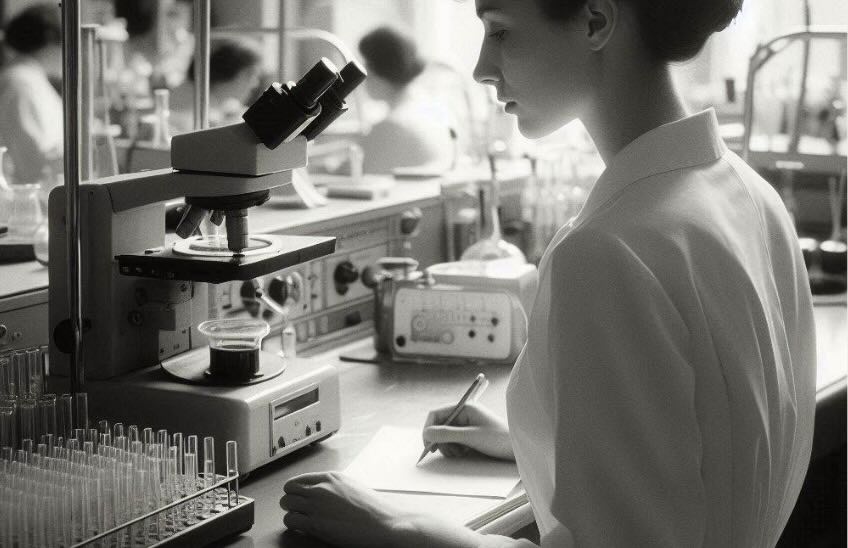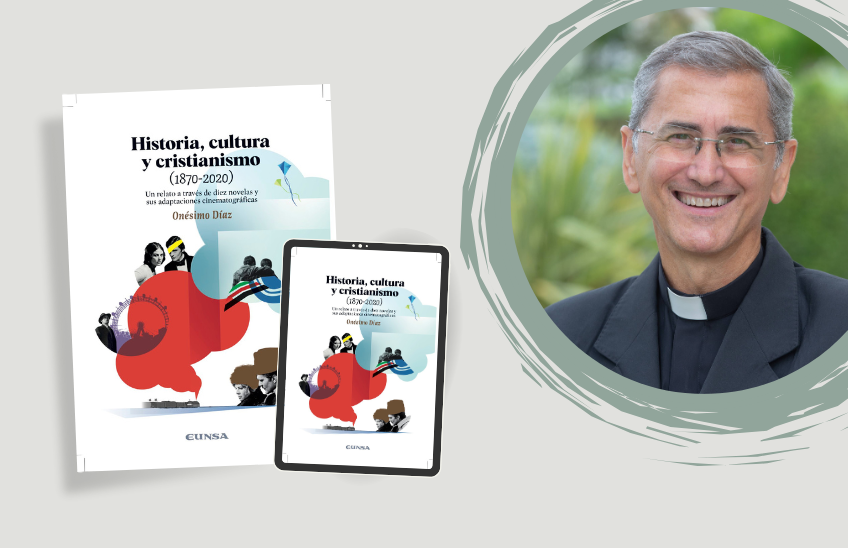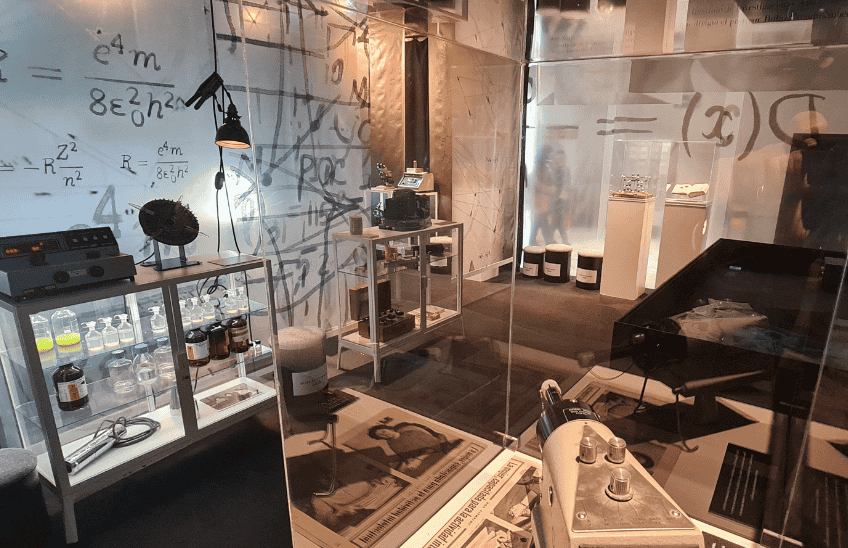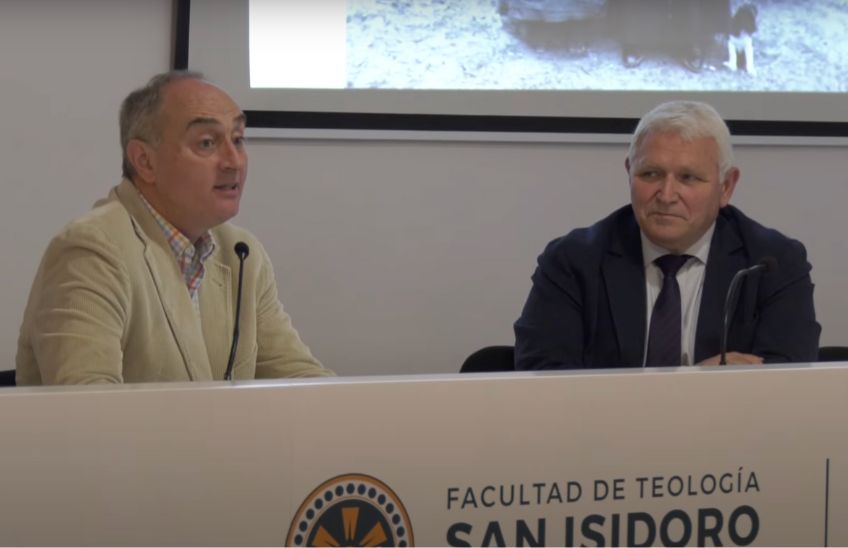Alfonso Carrascosa: "In my experience, science does not destroy faith".
Alfonso Carrascosa, PhD in Biological Sciences, explores and makes visible the careers of Spanish Catholic women scientists. In this interview, he explains how his programs of study seeks to highlight the compatibility between science and faith and offer an enriching perspective on how both can coexist and complement each other.

03 | 09 | 2024
At the crossroads between science and faith, few voices have been raised with the clarity and determination of Alfonso Carrascosa. D. in Biological Sciences from the Complutense University of Madrid, he began his degree program in microbiology. After a turn in his scientific activity he turned to the study and research of the history of science from a perspective that challenges the traditional narratives about the incompatibility between science and religion.
Carrascosa, through his research, seeks to demonstrate that science and faith can not only coexist, but also collaborate synergistically in the enrichment of knowledge. In recent years, she has published more than a hundred biographical sketches of Spanish women scientists who, in addition to achieving significant advances in their respective fields, maintained a deep Christian faith throughout their careers.
In this interview, she explains her efforts to highlight the role of Spanish Catholic women scientists, a work that not only enriches our understanding of the past, but also offers a new vision of the relationship between science and faith today.
What inspired you to research and write about Spanish Catholic women scientists?
This topic has always been of deep interest to me. I realized that there was no one who addressed it in a systematic way, despite the fact that there are many women who fulfill this profile. Moreover, I am convinced that by making these women visible, we can help to demonstrate that science and the Catholic faith are not only compatible, but have coexisted and mutually enriched each other throughout history. This contrasts with the secularist and politically correct historiographical speech that predominates today.
My goal is to propose concrete facts through the names of practicing Catholic women, who have also developed an outstanding scientific work or professor in the university field. I believe that in this way I contribute to the new evangelization through culture, following the proposal of the Atrium of the Gentiles proposed by Benedict XVI in his speech of December 2009.
In my research, I have focused especially on the CSIC ( committee Superior de Investigaciones Científicas), where I have found a good issue of women scientists who, in addition to their academic work, led a life of fervent Catholic faith. Some even decided to leave their scientific careers to enter convents. Throughout contemporary Spanish history, these women have existed, but their study has been limited. My work seeks to correct this omission.
What have been the biggest challenges you have faced in highlighting the contributions of these women in science?
Undoubtedly, the biggest challenge has been to prove their status as practicing Catholic believers. This is not just a problem for women; it is also a problem for men. In many cases, they seem to fear possible unfavorable consequences for openly manifesting their faith. There was a time when declaring oneself a Catholic could be beneficial, but today it is more of a testimonial attitude, almost martyrial, in the purest sense of the word. In fact, I consider this witness to be a form of evangelization of the first magnitude. It is important to offer these models to young believers so that they know that it is possible to combine faith and science in a complete way.
In general, Spanish Catholic women scientists do not usually make their faith public beyond their close environment, which keeps them invisible to the majority of society. This fact, indirectly and involuntarily, reinforces the secularist narrative that there are no Catholic women scientists, something that I continue to demonstrate is totally false.
In my research, interviews with family members, review of material from file and personal documents have been core topic to reconstruct the individual trajectories of these women.
How has the reception of your articles been both at academic community and among the general public?
In general terms, I think the reception has been good and, moreover, has surprised many. Until recently, the existence of so many women believers who devoted themselves to scientific research was unknown. Many people, both in the academic world and outside it, look favorably on these biographical stories that are living examples of the compatibility between science and faith. They are happy to know that someone is making these facts visible. It is important that we continue to believe in what we do, and that is why I have a strong vocation to write and publish these biographies. I feel it is my duty to contribute to a more inclusive scientific narrative that recognizes the spiritual dimension of these women.
How do you see the relationship between the Catholic faith and scientific advancement in the context of the women you write about?
I see the relationship between the Catholic faith and scientific progress as two realities that not only complement each other, but are synergistic, that is, they help each other. God lets himself be known through his works, and scientific activity seeks to describe and understand them. I know of no case in which a woman or man has lost their Catholic faith because of their scientific work . Instead of seeing a growing trend of atheist women scientists, what we observe is that some people become scientists without necessarily implying a conflict with faith. The apparent incompatibility between science and Catholic faith may be more a reflection of the spread of atheism than a true discordance between the two.
Currently, I am working on examples and profiles of women who have integrated science and faith in their lives. I have published on the Internet more than a hundred biographical sketches of women scientists, many of them can be found in Religion in Freedom, Ecclesia magazine and Cope.
A couple of years ago, the Government of Navarra asked me to write about María Josefa Molera Mayo, a Navarre scientist and pioneer in the study of the Coca Cola formula and combustion expert, who spent her whole life dedicated to science and was the first Navarre scientist in history. Her biography will be part of a collection of books dedicated to highlighting influential female figures in science.
Do you have plans for future projects or publications related to this topic?
Yes, I plan to continue to highlight the existence of women who combine science and the Catholic faith in their lives. My goal is to ensure that this information is well documented on the Internet, so that anyone interested in these topics can find and learn about the profiles of these women.
This year, on the occasion of the 85th anniversary of the founding of the CSIC, I will publish a book graduate Ciencatólicas y científicas españolas. This book will highlight many women who have developed their scientific careers in the CSIC.
What advice would you give to young scientists, especially women, who wish to integrate their faith with their scientific degree program ?
I would tell them that Catholic women scientists have existed, exist and will continue to exist. Faith is not lost by doing research; rather, it can be a source of strength and guide. I would recommend that you look for ways to strengthen your faith through the various ecclesial realities that the Catholic Church offers, as they are designed precisely to support those who wish to integrate their faith with their vocations.
Above all, I encourage you to remember the words of St. John Paul II: "Do not be afraid. Do not hesitate to make known, even in a simple way, that faith and science are perfectly compatible. This gesture will not only do many people a favor, but it may also be the greatest favor you do for your own daughters, since faith is a gift that can be transmitted and received, no matter how old you are.



